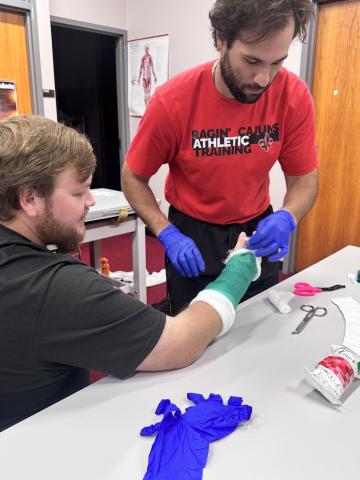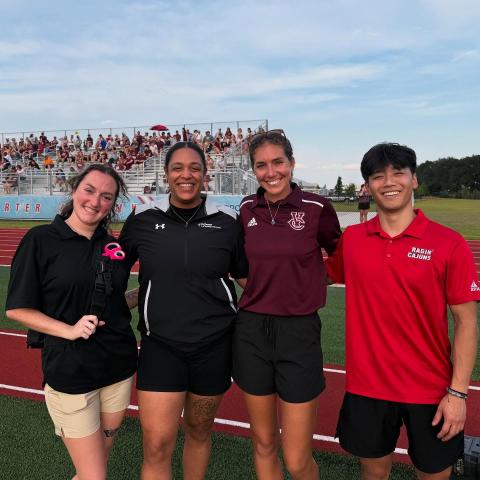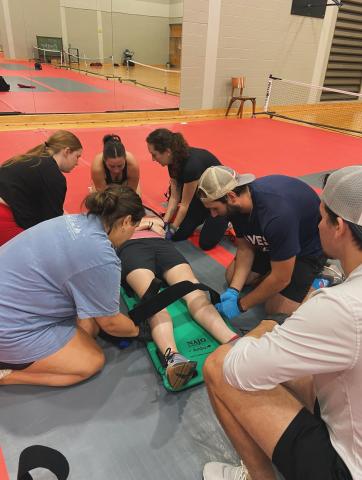M.S. Athletic Training Courses & Curriculum

The Master of Science in Athletic Training is a professional program consisting of six semesters and a total of 55 units. Admissions occur annually, with classes commencing in June for each cohort. As a student in the athletic training program, you will become a healthcare professional and have the opportunity to pursue additional certifications and trainings.
Students will investigate solutions and address the evolving healthcare landscape through evidence-based medicine and interdisciplinary collaboration. Courses that focus on clinical practice, patient care, therapeutic modalities, and orthopedic injuries provide both theoretical and practical learning opportunities. You will gain
experience in performing evaluations, clinical skills for emergency situations, suturing, therapeutic modalities, joint reductions, and therapeutic exercises.
Extra trainings and certificates that are obtained include:
-
Louisiana Emergency Medical Responder (can take national test if they would like to)
- BLS CPR and AED certification
- Stop the Bleed training
- QPR Gatekeeper training
- BOC certification / State licensure
- Safe Space certified
- Additional certification opportunities
Curriculum Sequence >>
*As of the 2025–2026 academic year, the thesis track will no longer be offered.
Clinical Rotations

The athletic training curriculum features four clinical rotations that provide students with diverse experiences.
You will collaborate closely with healthcare professionals in various settings, including the university, secondary schools, physical therapy clinics, physician offices, and health clinics. This includes working alongside athletic trainers, physical therapists, chiropractors, sports nutritionists, counselors, nurses, physicians, and emergency medical technicians.
Throughout these clinical rotations, you will have opportunities to grow professionally and develop a comprehensive, interdisciplinary understanding of healthcare culture.
Immersive Clinical Experience: In the final semester of the program, you will also complete a 16-week immersive clinical experience, working alongside a certified athletic trainer and participating in the full-time, day-to-day responsibilities of a healthcare provider. This hands-on experience allows you to understand the complete spectrum of care delivered by clinicians.
Utilize the knowledge and skills acquired during your time in the athletic training program while receiving constructive feedback from a licensed professional. This process will enhance your confidence in your abilities, equipping you with essential job skills and professional socialization to ensure a smooth transition into your career.
Sports Medicine Association (SMA)
The Sports Medicine Association is a student-led organization within the School of Kinesiology, dedicated to engage Kinesiology students with regional, state, and national organizations. It also fosters student-faculty connections and provides social and academic opportunities outside the classroom. More information can be found in here.

